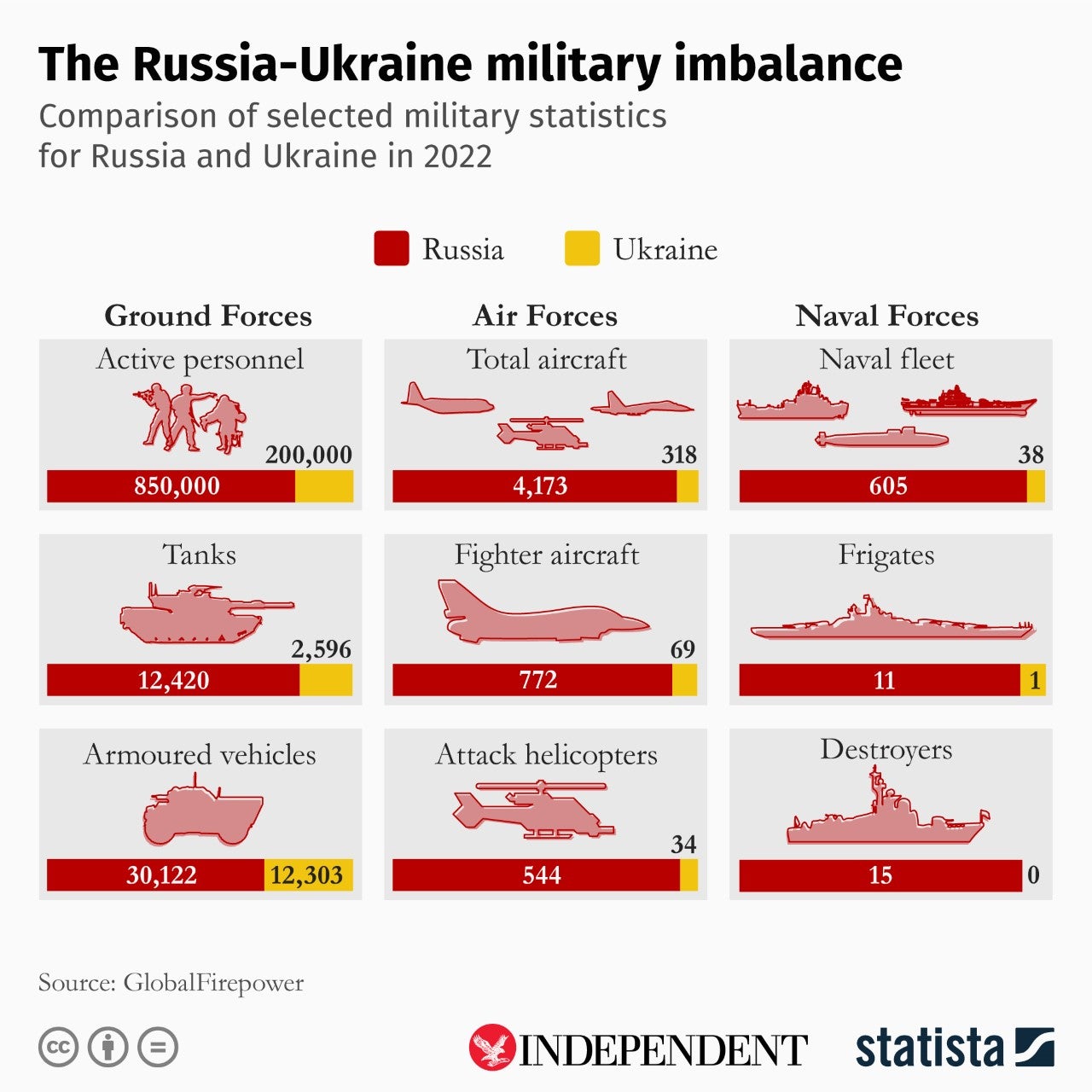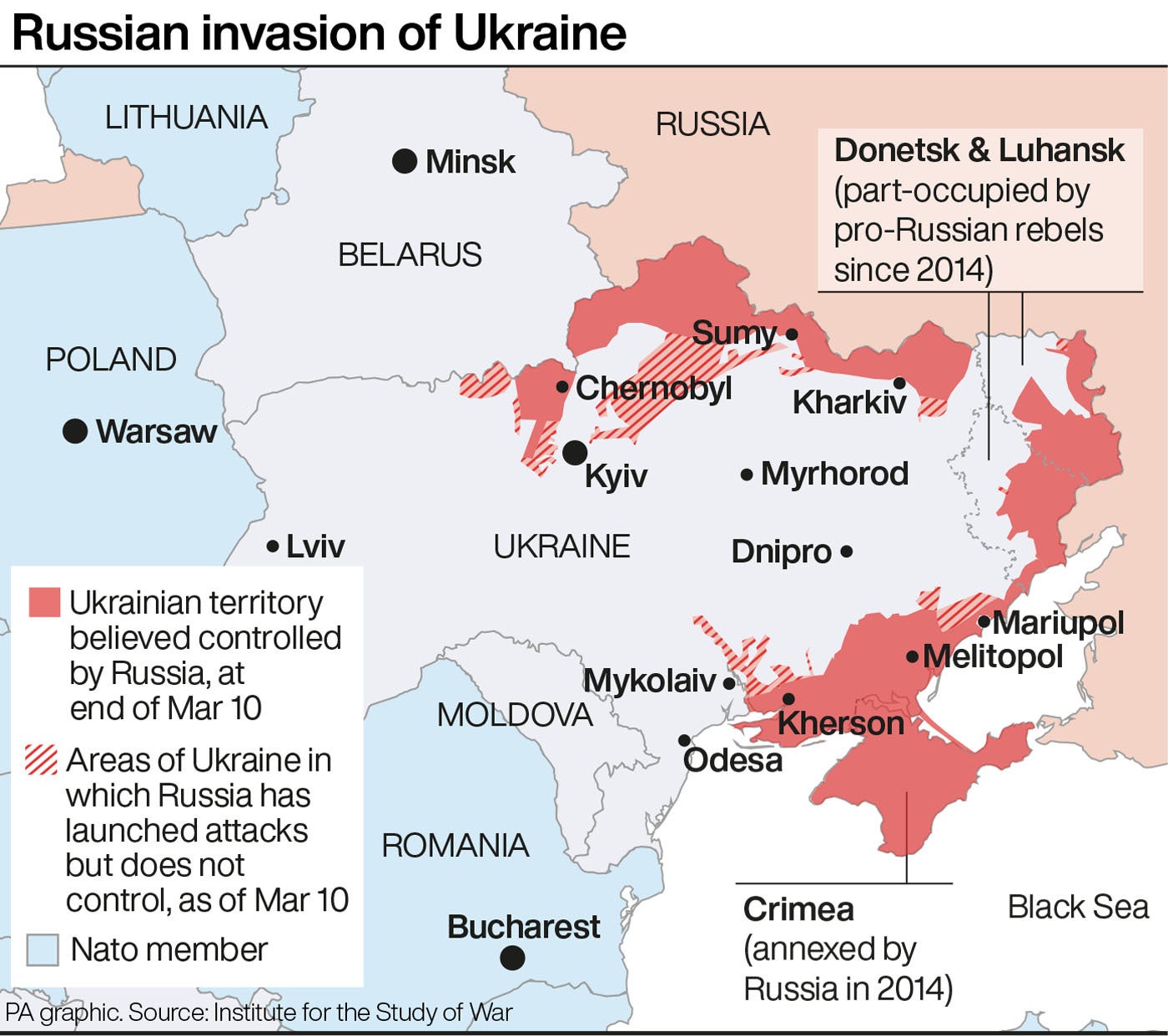Ukraine war: ‘Credible reports’ of Russia using cluster bombs in populated areas, says UN
Human rights agency warns Moscow that these actions could amount to war crimes
Your support helps us to tell the story
From reproductive rights to climate change to Big Tech, The Independent is on the ground when the story is developing. Whether it's investigating the financials of Elon Musk's pro-Trump PAC or producing our latest documentary, 'The A Word', which shines a light on the American women fighting for reproductive rights, we know how important it is to parse out the facts from the messaging.
At such a critical moment in US history, we need reporters on the ground. Your donation allows us to keep sending journalists to speak to both sides of the story.
The Independent is trusted by Americans across the entire political spectrum. And unlike many other quality news outlets, we choose not to lock Americans out of our reporting and analysis with paywalls. We believe quality journalism should be available to everyone, paid for by those who can afford it.
Your support makes all the difference.The UN human rights body has said it has “credible reports” of Russian forces using cluster bombs in populated areas in Ukraine and added that these actions could amount to war crimes.
Cluster munitions release smaller ‘bomblets’ over a wide area and can lead to mass casualties among civilians in populated areas. Under the 2008 Convention on Cluster Munitions, more than 100 countries have committed never to use these weapons. Russia is not among the signatories, but it is bound by international humanitarian laws.
“Due to their wide area effects, the use of cluster munitions in populated areas is incompatible with the international humanitarian law principles governing the conduct of hostilities,” Liz Throssell, the spokesperson for the UN High Commissioner for Human Rights said in Geneva.
“Civilian casualties are rising daily, as is general human suffering,” she said, adding that many attacks appeared to be indiscriminate. Russian forces were using missiles, heavy artillery shells and rockets, as well as airstrikes – all explosive weapons that have wide-area effects – in or near populated areas.
“We remind the Russian authorities that directing attacks against civilians and civilian objects, as well as so-called area bombardment in towns and villages and other forms of indiscriminate attacks, are prohibited under international law and may amount to war crimes,” she added.
“On 24 February, a cluster munition exploded at the Central City Hospital in Vuhledar, in government-controlled Donetsk, killing four civilians, injuring 10 others, and damaging ambulances, civilian vehicles and the hospital itself. There were other cluster munition attacks in several districts of Kharkiv, in which nine civilians were killed and 37 injured,” the UN agency, which has dozens of monitors in the country, said.
Amnesty International has said cluster bombs were used in a Russian attack that killed a child and two adults hiding in a pre-school in northeastern Ukraine. A second child was killed in the shelling on the Sonechko nursery and kindergarten in the city of Okhtyrka on 25 February. Amnesty added the strikes may constitute a war crime.

Nato Secretary-General Jens Stoltenberg also said Russia had used cluster bombs in its assault on Ukraine. “We have seen the use of cluster bombs and we have seen reports of use of other types of weapons which would be in violation of international law,” he said on 4 March.
The Kremlin, however, continues to deny targeting civilians or using cluster munitions.
Ms Throssell also noted that schools, hospitals, and kindergartens have been hit “with hugely devastating consequences”.
Her statement came after Ukraine accused Russia of hitting a psychiatric hospital with 330 people inside in the Kharkiv region.
According to a World Health Organisation database, as of Friday, there have been 27 confirmed attacks on health care centres since the Russian invasion began.

The UN agency said it has recorded 549 civilian deaths and 957 injuries since the invasion began on 24 February, but suspects that the actual figure is much higher.
As fighting continued in Ukraine for the 17th day on Saturday, the bulk of Russian ground forces were reported to be around 25km from the centre of Kyiv. UK’s defence ministry said Russian air and missile forces have conducted strikes in western Ukrainian cities of Lutsk and Ivano-Frankivsk.
Major Ukrainian cities such as capital Kyiv, Lviv, Kharkiv and Cherkasy woke up to air raid sirens on Saturday morning. Ukraine officials also reported several fires near Kyiv after a night of shelling by Russian troops.
The Independent has a proud history of campaigning for the rights of the most vulnerable, and we first ran our Refugees Welcome campaign during the war in Syria in 2015. Now, as we renew our campaign and launch this petition in the wake of the unfolding Ukrainian crisis, we are calling on the government to go further and faster to ensure help is delivered.
To find out more about our Refugees Welcome campaign, click here. To sign the petition click here. If you would like to donate then please click here for our GoFundMe page.
Additional reporting by agencies

Join our commenting forum
Join thought-provoking conversations, follow other Independent readers and see their replies
Comments